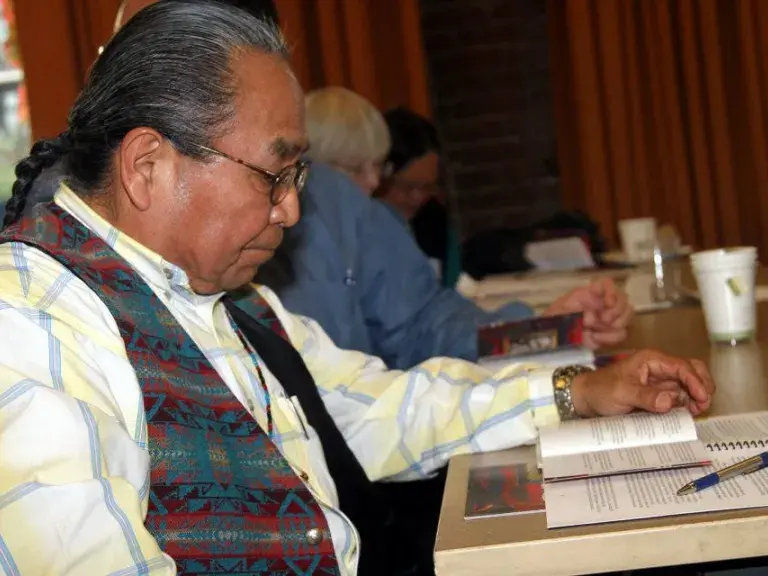
When President Barack Obama announced U.S. support for the UN Declaration on the Rights of Indigenous Peoples on December 16, 2010, it opened up a rare opportunity for Native nations. More than 30 years ago, they told us we couldn't do it. Now there is no country on earth that opposes the Declaration that gives our nations and peoples a right to exist!
The Declaration gives us an opportunity to correct injustices in present law that make it impossible for Indian and Alaska Native nations to make much needed progress, such as the taking of Indian lands and property without compensation; the violation of treaty obligations; the stripping of inherent tribal governmental powers; the elimination of long-standing hunting and fishing rights; the mismanagement of tribal trust funds by the federal government; and the unjustifiable level of federal control over tribal lands and resources.
Tribes must act quickly to establish and assert their rights under the Declaration
When making the announcement to support the Declaration, President Obama did something that no other leader has done -- he promised action. Now is the time to ask our President to act on his word by issuing an Executive Order directing his administrative agencies to implement the Declaration. An executive order could include a good idea proposed by at least one Indian nation: creation of a Presidential Commission with a mandate to implement the Declaration. An executive order would be an important step toward implementing the rights recognized in the Declaration and toward reforming the discriminatory aspects of federal Indian law and policy. Currently, U.S. courts, including the Supreme Court, frequently behave as if the United States Constitution doesn't really apply to Indian nations. They simply ignore it. Concrete action by the White House could help to change this.
In order to see major legislation become a reality and for principles of the UN Declaration to become binding, it will take broad support from tribal governments. We must come together and offer proposals for what should replace these unjust laws. In the Center's Draft General Principles of Law Relating to Native Lands and Natural Resources, we have provided some proposals as a starting point for discussion about reforming federal Indian law.
Take Action Now
There are many things that Native leaders and advocates can do now to start moving the implementation of the Declaration forward:
- Contact the Center for a regional or on-site training session on how to use the Declaration;
- Adopt tribal resolutions calling for implementation of the UN Declaration (see draft tribal resolution);
- Write your members of Congress asking them to observe and implement the principles of the UN Declaration (see draft letter to members of Congress);
- Call on federal agencies to immediately review laws and policies in consultation with tribes, or better yet, ask the President to direct federal agencies to do this through an executive order (see draft letter to the White House);
- Review the Draft General Principles of Law Relating to Native Lands and Natural Resources.
The current legal framework, more than any other factor, is responsible for the longstanding poverty, political marginalization, and social ills that are so common in Indian Country. The Declaration gives us something that we have never had before – the opportunity for real change. We must act now and take advantage of this opportunity before it disappears.
Sincerely,
Robert T. Coulter
